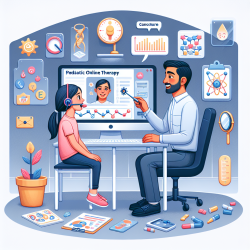The research article titled "University students with attention deficit hyperactivity disorder (ADHD): a consensus statement from the UK Adult ADHD Network (UKAAN)" offers critical insights into the challenges and needs of university students with ADHD. This blog aims to distill these insights into actionable guidance for practitioners, particularly those involved in providing online therapy services to schools, such as TinyEYE.
Understanding the Impact of ADHD on University Students
ADHD is a neurodevelopmental disorder characterized by symptoms of inattention, hyperactivity, and impulsivity, which can significantly impact educational outcomes. According to the UKAAN consensus, timely access to diagnosis and treatment is crucial for improving the academic performance and overall well-being of university students with ADHD.
Key Recommendations for Practitioners
- Screening and Diagnosis: Utilize validated screening tools such as the Adult ADHD Self-Report Scale (ASRS) to identify symptoms. Follow up with a comprehensive diagnostic assessment using tools like the Diagnostic Interview for ADHD in Adults (DIVA-5).
- Timely Access to Treatment: Develop rapid access care pathways in collaboration with NHS or private providers to ensure students receive timely diagnosis and treatment.
- Personalized Interventions: Implement personalized educational support plans that include reasonable adjustments such as extra time for exams, academic coaching, and specialist mentoring.
- Multimodal Treatment Approaches: Combine pharmacological treatments with non-pharmacological interventions such as Cognitive Behavioral Therapy (CBT), mindfulness, and academic coaching to address both core symptoms and associated impairments.
- Training and Development: Provide targeted training for university support staff on ADHD, including psychoeducation, screening, and diagnostic procedures, as well as strategies for effective support.
Overcoming Stigma
Stigma remains a significant barrier for students with ADHD, affecting their willingness to seek diagnosis and treatment. Practitioners should be aware of the potential stigma and work to create an inclusive and supportive environment that encourages students to disclose their ADHD and seek help.
Collaborative Efforts
Collaboration between university disability services, NHS, and private providers is essential for creating a seamless support system for students with ADHD. This collaboration can help ensure that students receive comprehensive care that addresses both their educational and medical needs.
Conclusion
By implementing these recommendations, practitioners can significantly improve the educational outcomes and overall well-being of university students with ADHD. Continued research and training are essential for staying updated on best practices and providing the most effective support.
To read the original research paper, please follow this link: University students with attention deficit hyperactivity disorder (ADHD): a consensus statement from the UK Adult ADHD Network (UKAAN)










